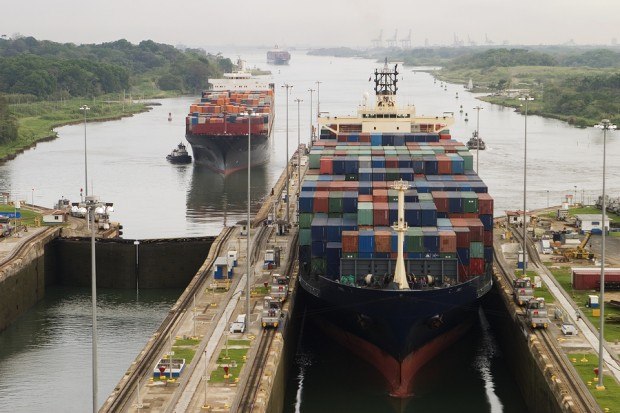Flawed geological studies of the terrain of the Panama Canal by its operator has led to big cost overruns in the project to expand the waterway, the building consortium at the center of a dispute with Panama’s government over the plan said on Saturday.
Earlier last week, the consortium led by Spanish builder Sacyr said the scheme to build a third set of locks for the canal had incurred additional costs of $1.6 billion, and demanded Panama foot the bill or work would be suspended.
Panama rejected those arguments, but has hinted it could negotiate some kind of compromise with the consortium, which also includes Italy’s Salini Impregilo, Belgium’s Jan De Nul and Panama’s Constructora Urbana.
Complaints by consortium officials on Saturday about geological problems provided some of the most detailed explanations yet on what pushed costs above the projections to expand one of the world’s major maritime cargo routes.
The consortium known as Grupo Unidos por el Canal (GUPC), on Saturday reiterated that it did not plan to abandon the project, but would suspend works on Jan. 20 if no deal was reached.
GUPC officials told reporters that when excavations to build the locks began, they found the geology of the area was more complex than had been made clear when the project was tendered.
“The main part of (the cost overruns) is due to geological flaws and is related to problems with the concrete,” said Paolo Moder, a member of the GUPC’s board of directors.
After the group began digging in the Pacific zone of the canal, the basalt they found there was not right for the mix of concrete they planned for the locks, so they had to bring in basalt from elsewhere, resulting in higher costs, said Jose Pelaez, head of the GUPC section building the Atlantic locks.
But the canal authority rejected that mix, and for seven months the GUPC had to develop other mixes until in the end the authority finally approved the original one, he added.
He said the geological studies were carried out by the canal authorities in tandem with international advisors, and formed the basis for the subsequent tender the consortium won.
“The (Panama Canal Authority) studied these technical conditions for more than seven years and didn’t detect them, and it’s not fair to assign GUPC or any contractor unlimited risks for something the GUPC only had months to study,” Pelaez said.
A team of Spanish government officials is traveling to Panama this weekend to try to help resolve the dispute over the massive infrastructure project, which aims to broaden and deepen existing channels so bigger vessels can sail through.
The canal authority responded to the comments by stating that the GUPC could present its arguments to the arbitration authorities set out to resolve disputes under the contract.
Asked whether the companies could seek government aid, Pelaez said the consortium was “a private group and the actions undertaken by the government are strictly diplomatic”.
The canal expansion, whose total cost is estimated at around $5.3 billion, is at the center of the Panamanian government’s plans to modernize the Central American country, and President Ricardo Martinelli is insistent the project must be completed.
Spain is also keen to demonstrate its builders can be relied on after a slump in the local construction industry plunged the country into an economic crisis that has dragged on for years.





















 Experts Say It’s Difficult to Tie AI to Layoffs
Experts Say It’s Difficult to Tie AI to Layoffs  Berkshire-owned Utility Urges Oregon Appeals Court to Limit Wildfire Damages
Berkshire-owned Utility Urges Oregon Appeals Court to Limit Wildfire Damages  Earnings Wrap: With AI-First Mindset, ‘Sky Is the Limit’ at The Hartford
Earnings Wrap: With AI-First Mindset, ‘Sky Is the Limit’ at The Hartford  AIG, Chubb Can’t Use ‘Bump-Up’ Provision in D&O Policy to Avoid Coverage
AIG, Chubb Can’t Use ‘Bump-Up’ Provision in D&O Policy to Avoid Coverage 